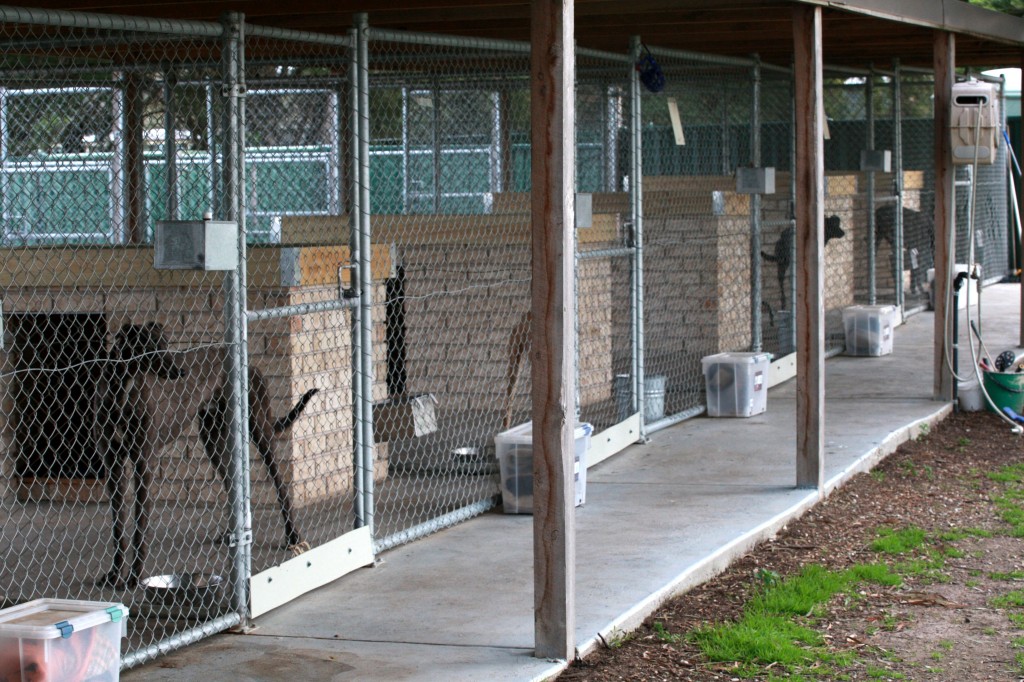What is Kennel Cough?
Kennel Cough is a highly contagious disease in dogs, caused by a number of upper respiratory viruses (including canine parainfluenza) and bacteria (usually Bordetella bronchiseptica).
How do dogs get Kennel Cough?
Kennel Cough is spread as droplets in the air from one coughing dog to a healthy dog. When an infected dog coughs, the bacteria and viruses will usually die quickly in the air unless those droplets are inhaled by another dog in close proximity. Once a dog has inhaled the infection, it usually takes between five and seven days for symptoms to begin.
It is important to note that even after the coughing has stopped and your dog appears well, they can remain infectious (continue to shed the infection) for up to three months.
What are the symptoms of Kennel Cough?
The symptoms of Kennel Cough include:
- runny nose
- sneezing
- dry, hacking cough
How long does Kennel Cough last?
Depending on the general health of your dog, the exact infectious agent(s) associated with the disease, and your dog’s vaccination status, Kennel Cough can last from a few days to several weeks.
Can Kennel Cough be prevented?
Annual vaccination against the Bordetella bronchiseptica bacteria and canine parainfluenza virus (part of the C5 vaccination) can prevent Kennel Cough outbreaks or at least help to reduce the incidence and/or severity of the diseases. As described earlier, Kennel Cough is often caused by a combination of viruses and bacteria, although it is often the Bordetella bronchiseptica bacteria that causes the severe cough; and it is the coughing that spreads the disease.
Vaccination is especially important because dogs with Kennel Cough can continue to spread the disease for up to three months after their symptoms have disappeared.
Kennel Cough vaccinations can be obtained through your veterinarian in injectable, intra-nasal (nose) or oral forms. The intra-nasal and oral vaccinations can be very effective in preventing the spread of Kennel Cough, as they usually act more rapidly than the injection. This is because the intra-nasal and oral vaccines act on the mucus membrane lining of the nasal and oral passages, preventing the viruses and bacteria from gaining entry into the animal.
My dog has Kennel Cough, what do I do?
At the first sign of Kennel Cough, the sick dog should be immediately isolated from all other dogs on your property (as much as possible) and you should contact your veterinarian, who will provide information about treatment options, quarantine and vaccination options for your sick dog and any other dogs you own.
Remember, the disease travels from dog to dog through droplets in the air, so as much as possible you should attempt to disinfected floors and areas where your dog generally sleeps. All dog bedding, drinking and food bowls should be washed in hot soapy water. Don’t forget to disinfect your outdoor kennel as well, with hospital grade disinfectants, which can be purchased from your local supermarket (note that if you have a cat, take care with any pine based product as these can be toxic to cats).
In addition, ventilating your house (opening doors at either end to allow fresh air in) will also help reduce spread of the disease.
Can people catch Kennel Cough?
No, Kennel Cough cannot be caught by humans.



